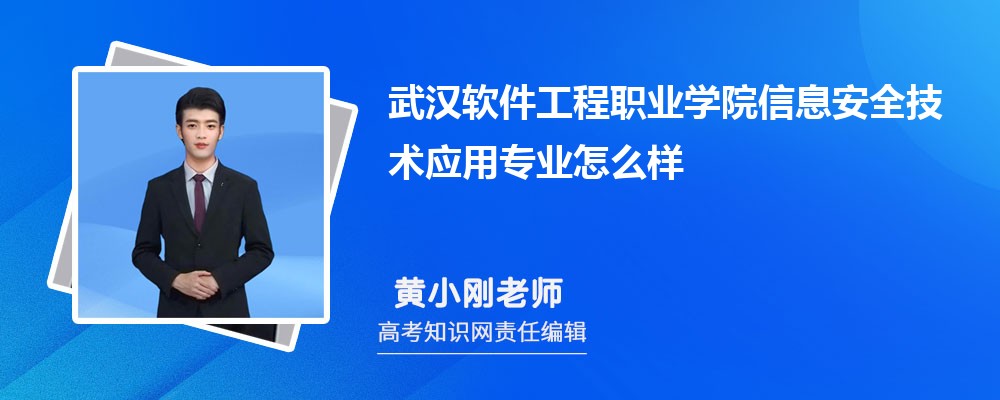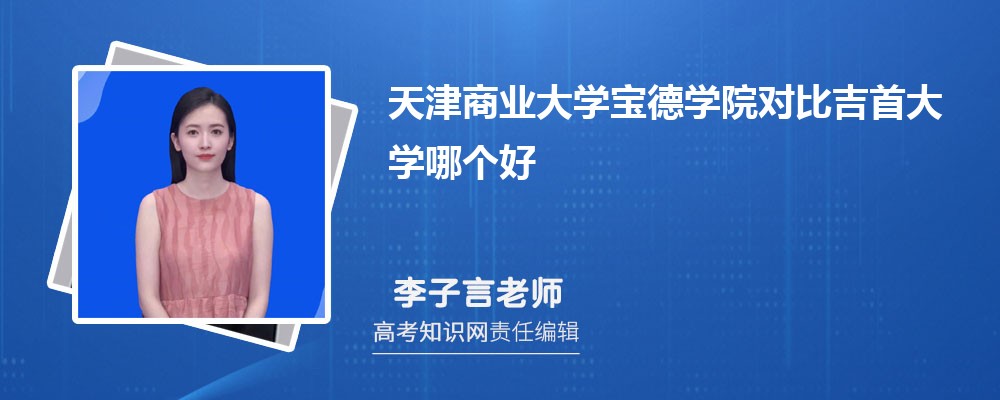當(dāng)前位置:高考知識(shí)網(wǎng) > 寫作模板 > 正文
適合寫英語(yǔ)論文的名著題目150個(gè)
更新時(shí)間:2023-08-24 21:41:37 高考知識(shí)網(wǎng) www.whxn.com.cn1、《紅字》中海絲特白蘭不理智的一面(The Irrational Side of Hester Prynne of The Scarlet Letter)
2、《董貝父子》中的矛盾沖突(The Conflict in Donbey and Son)
3、論文化不同對(duì)聯(lián)想意義及翻譯的影響(On Influence of Cultural Differences on Associative Meanings and Translation)
4、美國(guó)教育的衰弱(The Drop of American Education)
5、世紀(jì)歐洲移民對(duì)美國(guó)工業(yè)化的積極影響(The Positive Impacts of European Immigration on American Industrialization in theth Century)
6、朱麗葉之人物分析(Character Studies in Juliet)
7、主述理論在文學(xué)中的運(yùn)用(The Application of the Thematic Theory in Literature)
8、語(yǔ)用學(xué)中的會(huì)話含義理論(Conversational Implicature Theory in Pragmatics)
9、英語(yǔ)語(yǔ)音簡(jiǎn)析及對(duì)提高初學(xué)者口語(yǔ)的指導(dǎo)(A Brief Analysis of English Phonetics as well as a Guide to Improve Learners’ Oral English)
10、比較兩種對(duì)于哈姆雷特復(fù)仇的評(píng)論(Comparison on Two Kinds of Comments on Hamlet’s Revenge)
11、英語(yǔ)語(yǔ)言中的性別歧視 (Sexism in English Language)
12、英語(yǔ)的學(xué)與教 (English Learning and Teaching)
13、由美國(guó)年總統(tǒng)選舉所想到的 (More than Presidential Election)
14、論腐朽世界中的純潔品質(zhì)??關(guān)于《霧都孤兒》的賞析 (The Purity in a Corrupt World?An Analysis of Oliver Twister)
15、論理智與情感之關(guān)系??對(duì)《理智與情感》的人物分析
16、入世對(duì)中國(guó)銀行業(yè)的挑戰(zhàn) (Challenges on Chinese Banking Sector after Entering the WTO)
17、西進(jìn)運(yùn)動(dòng)對(duì)美國(guó)的影響 (The Influences of Westward Movement on America)
18、史蒂芬?克拉申的聽(tīng)讀假設(shè)和二語(yǔ)得 (Stephen Krashen’s Input Hypothesis and Second Language Acquisition)
19、艾?巴?辛格??猶太文化的守護(hù)者 (LBSinger?the Patron of Jewish Civilization)
20、二十世紀(jì)年代美國(guó)婦女運(yùn)動(dòng)的派別 (The Politics of American Women’s Movement in the’s)
21、論《紅字》的模糊性 (Ambiguity in The Scarlet Letter)
22、《嘉莉姐妹》中無(wú)心的欲望 (The Limitless Desires in Sister Carrie)
23、英語(yǔ)廣告語(yǔ)言修辭特點(diǎn) (Rhetorical Features in Advertising English)
24、《兒子與情人》中的戀母情結(jié) (Pau Morel’s Oedipus Complex in Sons and Lovers)
25、造成苔絲悲劇命運(yùn)的原因 (The Reasons for Tess’s Tragic Fate)
26、論恐怖主義的根源 (On the Root of Terrorism)
27、中印關(guān)系新紀(jì)元 (: A New Era of Sino-India Relationship)
28、希茲克利夫的復(fù)仇 (The Revenge of Heathcliff)
29、弗洛伊德理論對(duì)美國(guó)現(xiàn)代文學(xué)的影響 (The Influence of Freudian Theory on Modern American Literature)
30、論薩姆一家人之“變形” (The Etamoephosis of the Samsas)
31、亞伯拉罕林肯的民主初探 (A Preliminary Research on Abraham Lincoln’s Thought of Democracy)
32、評(píng)析《傲慢與偏見(jiàn)》的男主人公達(dá)西 (MrDarcy in Pride and Prejudice)
33、《簡(jiǎn)愛(ài)》的圣經(jīng)情書 (The Relationship Between Jane Eyre and the Bible)
34、庫(kù)區(qū)三角浮出水面??萬(wàn)州、開縣、云陽(yáng)經(jīng)濟(jì)宏圖 (The Triangle of Reservoir Region Is Surfacing?Wanzhou, Kaixian and Yunyang Open a Great Diagram of Economy)
35、會(huì)話中的合作原則和禮貌原則 (Cooperative Principle and Politeness Principle in Conversation)
36、淺析海明威筆下圣地亞哥與其它主人公之異同 (Analysis of the Similarities and Differences Between Santiago and Other Heroes by Hemingway)
37、對(duì)嘉爾曼的偏見(jiàn) (The Prejudice Against Carmen)
38、簡(jiǎn)愛(ài)??關(guān)于簡(jiǎn)愛(ài)的性格評(píng)論 (Jane Eyre?A Review of Jane Eyre’s Character in Jane Eyre)
39、《呼嘯山莊》中凱瑟琳和希斯克力夫之間的苦痛戀情 (The Suffering Love Between Catherine and Heathcliff in Wuthering Heights)
40、簡(jiǎn)評(píng)妥協(xié)??研究《傲慢與偏見(jiàn)》(A Brief Comment on the Compromise?A Study of Pride and Prejudice)
41、《傲慢與偏見(jiàn)》中的婚姻面面觀 (Analysis of the Marriages in Pride and Prejudice)
42、試論簡(jiǎn)奧斯汀生活對(duì)其小說(shuō)的影響 (On the Impact of Jane Austen’s Life on Her Novels)
43、“真實(shí)的諾言”與傳統(tǒng)文化的碰撞??簡(jiǎn)析“真人秀”的實(shí)質(zhì)和本地化過(guò)程 (When True Lies Challenge Tradition?An Analysis of the Reality and Localization of Reality TV)
44、從臺(tái)灣問(wèn)題看中美關(guān)系 (The Sino-US Relation?The Taiwan Issue)
45、《傲慢與偏見(jiàn)》的生命力 (The Great Vitality of Pride and Prejudice)
46、凡中的不凡??《傲慢與偏見(jiàn)》(Significance in Commonplace?Pride and Prejudice)
47、薩皮爾沃夫理論 (Sapir-Whorf Hypothesis)
48、論格里高爾的悲劇 (An Analysis of Gregor’s Tragedy)
49、對(duì)大學(xué)生心理健康問(wèn)題予更多關(guān)注 (More Attention to the Psychological Health of College Students)
50、文體學(xué): 語(yǔ)言學(xué)習(xí)的科學(xué) (Stylistics: A Scientific Approach)
51、佛教在西方 (Buddhism in the West)
52、非語(yǔ)言交際 (Nonverbal Communication)
53、國(guó)際反恐 (International Anti-Terrorism)
54、全球資金市場(chǎng)期特征與走向 (The Character and Tendency of Global Capital Market in Recent Decades)
55、從《老人與海》中桑堤亞哥的性格可知??人是打不敗的 (A Man Cannot Be Defeated?From the Character of Santiago in The Old Man and the Sea)
56、南方的失落 (The Loss of the South)
57、戲謔與幽默 (Banter and Humor)
58、《嘉莉妹妹》中的現(xiàn)實(shí)主義和自然主義(Realist and Naturalist Factors in Sister Carrie)
59、論中國(guó)的口語(yǔ)教學(xué)(On Oral English Teaching in China)
60、淺析英語(yǔ)教育中的文化教學(xué)(The Teaching of Cultures in Foreign Language Education)
61、廣告社會(huì)責(zé)任感訴求(Social Responsibility Concern of Advertising)
62、英語(yǔ)中的性別歧視(Sex Discrimination in English Language )
63、電影《亂世佳人》長(zhǎng)期受到青睞的原因(Gone with the Wind ? Why This Movie Has the Lasting Popularity)
64、廣告英語(yǔ)特點(diǎn)分析(An Analysis of Language Features in English Advertisement)
65、美國(guó)青少年教育問(wèn)題淺析(An Attempting Study of the Problems of American Adolescents)
66、簡(jiǎn)愛(ài)自我價(jià)值的實(shí)現(xiàn)(The Realization of Jane Eyre’s Self-Worth )
67、自由貿(mào)易與保護(hù)主義(Free Trade Versus Protectionism)
68、如何在課堂上調(diào)動(dòng)學(xué)生的積極性(How to Promote Motivation in the Classroom)
69、在英語(yǔ)教學(xué)中運(yùn)用“交際法”提高學(xué)生的交際能力(Using CLT in English Teaching to Improve Students’ Communicative Competence)
70、文化差異對(duì)跨文化交際的影響(The Influence of Cultural Difference Upon Cross-cultural Communication)
71、論基督教對(duì)中世紀(jì)早期西歐文化的影響(On Christianity’s Influence Upon European Culture in the Early-stage Middle Ages )
72、《哈克貝利費(fèi)恩歷險(xiǎn)記》是一部種族主義小說(shuō)嗎?(The Adventures of Huckleberry Finn-a Racist Novel?)
73、第二語(yǔ)言學(xué)習(xí)中的文化學(xué)習(xí)(Culture Learning in Second Language Learning)
74、試論哈姆雷特的兩個(gè)主題(On the Two Themes of Hamlet)
75、諺語(yǔ)中的文化差異(Cultural Differences in Proverbs)
76、淺談電視暴力和兒童的關(guān)系(TV Violence and Children)
77、《建設(shè)有的大眾文化》(Construction of Popular Culture with Chinese Characteristics)
78、理性視角看待當(dāng)今文化多樣性(Rational Perspectives toward Contemporary Culture Diversity)
79、米切爾在《飄》中的矛盾(Mitchell’s Ideological Contradiction in Gone With The Wind )
80、淺析馬克?吐溫作品之《競(jìng)選州長(zhǎng)》(A Brief Analysis on Mark Twain’s Work Running for Governor)
81、美國(guó)霸權(quán)的文化詮釋(Cultural InterPtation of American Hegemony)
82、中國(guó)人學(xué)習(xí)英語(yǔ)的語(yǔ)音問(wèn)題(The Phonetic Problems of Chinese Students Learning English )
83、傳統(tǒng)的中國(guó)文化對(duì)中國(guó)商業(yè)的影響(The Influence of Traditional Chinese Culture on Chinese Business)
84、《雙城記》中的典型人物角色及其對(duì)主題的詮釋(The Typical Characters of A Tale of Cities and Their Annotation to The Themes)
85、從儒家理論角度淺談贍養(yǎng)年老父母的責(zé)任(On the Filial Obligation in the Light of the Confucian Theory)
86、消費(fèi)需求與廣告策略(Consumer Need and Advertising Strategies)
87、古埃及女性的地位(The Status of Women in Ancient Egypt)
88、成功的秘訣??電影《阿甘正傳》的語(yǔ)言分析(The Secret of Success ?Analysis of Forest Gump’s Language)
89、文化全球化和文化民族性(Cultural Globalization and Nationality )
90、儒家文化與現(xiàn)代教育(Confucianism and the Modern Education)
91、委婉語(yǔ)的產(chǎn)生與交際功能(Social Function and Origin of Euphemism)
92、對(duì)旅游市場(chǎng)營(yíng)銷的探討(Tourism Marketing)
93、《黑暗之心》的內(nèi)容與主題(The Content and Theme of Heart of Darkness)
94、詩(shī)詞翻譯中的?R翻譯理論(On the -R Theories in Poetry Translation)
95、詞組記憶單詞的有效性(Vocabulary Study through Phrasal-learning)
96、伊拉克戰(zhàn)爭(zhēng)中所體現(xiàn)的美國(guó)價(jià)值觀(The American Values RePsented in the Iraq War)
97、實(shí)踐詞匯教學(xué)法(Word Teaching through Practice)
98、中國(guó)加入世貿(mào)組織對(duì)于國(guó)內(nèi)旅行社的影響(The Influence on Domestic Travel Agencies of China’s Entry to World Trade Organization)
99、高校校園文化及其建設(shè)(College Campus Culture and Its Construction)
100、試析《了不起的蓋茨比》里的象征主義手法(Symbolism in The Great Gatsby)
101、大學(xué)英語(yǔ)閱讀教學(xué)中的問(wèn)題及對(duì)策(Reading Teaching in College English :Problems and Measures)
102、口語(yǔ)課堂中引入文化教學(xué)(Add Culture Into oral English Class)
103、意外結(jié)局的大師??歐?亨利(The Master of Surprising Ending?O?henry)
104、淺析中國(guó)女性傳播者話語(yǔ)權(quán)的突破(On the Breakthrough of Discourse Analysis of Chinese)
105、淺析成都報(bào)業(yè)市場(chǎng)的競(jìng)爭(zhēng)及啟示(General Analysis of Chengdu Newspaper Market’s Competition and Enlightenment)
106、機(jī)遇?挑戰(zhàn)???試談報(bào)紙應(yīng)對(duì)網(wǎng)絡(luò)的沖擊(OpportunityChallenge??The Impact of Internet on Newspaper)
107、菲茨杰拉德:“爵士樂(lè)時(shí)代”的代言人(F .Scott Fitzgerald : The Spokesman of the Jazz Age)
108、霍桑的善惡觀??淺析《紅字》中的四個(gè)主要人物(Howthoren’s View on Good and Evil ?An Analysis of the Four Major Characters in The Scarlet)
109、中美文化差異之集體主義與個(gè)人主義(Collectivism and Inpidualism: Different Cultural Values in China and America)
110、通過(guò)人物分析思考《湯姆叔叔的小屋》中的基督教理念(Christianity in Uncle Tom’s Cabin as Seen from Character Analysis)
111、中美商業(yè)交往文化之差異比較(A Comparative Study of Cultural Differences in Business Communication Between Chinese and Americans)
112、光榮與恥辱??英國(guó)足球文化觀察(Honor and Disgrace ?An Observation of the Football Culture of UK)
113、《格列佛游記》中的諷刺手法(Satire in Gulliver’s Travels)
114、狄更斯小說(shuō)《雙城記》中人道主義的分析(The Analysis of Dickens’ Humanitarian Sentimentality?After Reading A Tale of Two Cities)
115、《大衛(wèi)?科波菲爾》的人物分析(An Analysis of Good and Bad Characters in David Copperfield)
116、語(yǔ)言歧義(Language Ambiguity)
117、美國(guó)英語(yǔ)變體和身份(English Variety and People’s Identities in the United States)
118、哈代對(duì)傳統(tǒng)倫理道德觀的批判(Hardy’s Criticism on Traditional Ethics and Morality in Tess of the D’Urbervilles)
119、《湯姆.索亞》??對(duì)兒童心理的深入分析和充分展現(xiàn)(Tom Sawyer, Full Analysis and Display of Children’s Psychology)
120、從扭曲到恢復(fù)??試析《李爾王》中的人性(From Distortion to Resuscitation ? An Analysis on Human Native in King Lear)
121、淺談《美國(guó)悲劇》及物質(zhì)主義的消極影響(An American Tragedy and the Negative Influence of Materialism)
122、情感與語(yǔ)言學(xué)中學(xué)英語(yǔ)學(xué)習(xí)中焦慮情緒(Affect in Language Learning ?Anxiety in Middle-school English Learning)
123、一部反戰(zhàn)小說(shuō)??淺析《永別了,武器》(An Antiwar Novel ?An Analysis of the Heroine in Gone with the Wind)
124、哈姆雷特悲劇成因探索(What Bring About the Tragedy of Hamlet)
125、透過(guò)《傲慢與偏見(jiàn)》看十八世紀(jì)英國(guó)紳士特點(diǎn)(Exploring the Traits of English Gentlemen in theth Century Through Pride and Prejudice)
126、論雙語(yǔ)教育在中國(guó)的可行性??透過(guò)高新區(qū)第一實(shí)驗(yàn)小學(xué)的調(diào)查(The Feasibility of Bilingual Education in China?Through the Research in the NOExperimental Primary School of Chongqing Hi-tech Industry Development Zone)
127、評(píng)論中國(guó)英語(yǔ)教學(xué)與學(xué)習(xí)(A Review of English Teaching and Learning in China)
128、從廣告用語(yǔ)看美國(guó)價(jià)值觀(Advertising Language as a Mirror of American Values)
129、跨文化交際失敗的原因(Causes of Breakdowns In Intercultural Communication)
130、《傲慢與偏見(jiàn)》中的次要人物(Minor Characters in Pride and Prejudice)
131、《印度之行》的象征意義(Symbolism in A Passage to India)
132、對(duì)《動(dòng)物農(nóng)莊》的思考??《動(dòng)物農(nóng)莊》里的人物象征意義(A Thought on Animal Farm?The Symbolism of the Characters of Animal Farm)
133、美國(guó)青少年犯罪與家庭的關(guān)系(The Relationships Between Family and Juvenile Delinquency in USA)
134、對(duì)于老師在課堂中主體作用的思考(Reflection on The Teacher As Classroom Leader)
135、兩性的語(yǔ)言差異(Gender Difference in Language)
136、中西方飲食文化比較(A Comparison Between Chinese and Western Dietetic Cultures)
137、“尋找出路,但沒(méi)有出路”?美國(guó)戰(zhàn)后青年的縮影“麥田守望者”(“Find Way Out , Yet No Way Out”?A Picture of the Postwar American Youth From The Catcher in the Rye)
138、圣經(jīng)對(duì)西方文化的影響(The Influences of the Holy Bible on the Western Culture)
139、中國(guó)婦女地位的變遷(Changes of Women’s Character)
140、《了不起的蓋茨比》所體現(xiàn)的“美國(guó)夢(mèng)”的幻滅(The Collapse of the American Dream RePsented in The Great Gatsby)
141、略論美國(guó)俚語(yǔ)(Remarks on American Slang)
142、從社會(huì)透視角度來(lái)看中美文化差異(Sino-America Culture Differences from a Social Perspective)
143、論《永別了,武器》中的死亡情緒(On theDeath in A Farewell to Arms)
144、《第二十二條軍規(guī)》的藝術(shù)(Artistic Features in Catch-)
145、《了不起的蓋茨比》與美國(guó)夢(mèng)(The Great Gatsby and the American Dream )
146、創(chuàng)造性與課堂中的保創(chuàng)造性思維(Phrase Approach to Vocabulary Learning)
147、文藝復(fù)興發(fā)生在意大利的必然性(The Certainty of Renaissance Arising in Italy)
148、中學(xué)英語(yǔ)中的多媒體技術(shù)(Multimedia Technologies in English Language Teaching in Middle School)
149、沖突在文學(xué)任務(wù)塑造中的運(yùn)用(On Conflicts in Characterization in Literature ? A Character Analysis of the Heroine in Gone with the Wind)
150、歐.亨利式結(jié)尾的藝術(shù)魅力 (The Artistic Charm of OHenry Ending)
南京科技職業(yè)學(xué)院對(duì)比長(zhǎng)沙民政職業(yè)技術(shù)學(xué)院哪個(gè)好 附分?jǐn)?shù)線排名2025-05-22 10:13:14
燕山大學(xué)里仁學(xué)院會(huì)計(jì)學(xué)專業(yè)怎么樣?錄取分?jǐn)?shù)線多少分2025-05-22 10:10:12
天津商業(yè)大學(xué)寶德學(xué)院對(duì)比吉首大學(xué)哪個(gè)好 附分?jǐn)?shù)線排名2025-05-22 10:06:40
河北高考物理246分排名多少 排名多少位次2025-05-22 10:04:32
寧夏上泰山科技學(xué)院多少分 分?jǐn)?shù)線及排名2025-05-22 10:02:08
重慶上廈門海洋職業(yè)技術(shù)學(xué)院多少分 分?jǐn)?shù)線及排名2025-05-22 09:58:38
遼寧上桂林醫(yī)學(xué)院多少分 分?jǐn)?shù)線及排名2025-05-22 09:56:30
基層黨員日常學(xué)習(xí)筆記范文2篇2023-08-19 13:02:17
機(jī)關(guān)黨員工作學(xué)習(xí)筆記記錄模板900字2023-08-27 14:51:54
單位黨員個(gè)人學(xué)習(xí)筆記三篇2023-08-12 01:55:45
公司質(zhì)量保證及售后服務(wù)承諾書(三篇)2023-08-23 05:33:22
顧客質(zhì)量售后服務(wù)承諾書范文3篇2023-08-14 23:31:44
給客戶產(chǎn)品售后服務(wù)承諾書二篇2023-08-25 18:51:47
精品文章
- 1最新入黨志愿書填寫范文參考三篇2024-02-07 02:10:55
- 22025年入黨積極分子自傳2000字范文..2023-08-27 12:50:49
- 32025年入黨積極分子自傳范文(通用1..2023-08-20 16:31:39
- 42025年借款協(xié)議書范本(精選23篇)2023-08-21 20:45:49
- 52025年最新版借款協(xié)議書范本(精選1..2023-08-20 02:35:48
- 6清明節(jié)祭奠先烈演講稿2023-08-13 09:45:45
- 7清明節(jié)祭英烈國(guó)旗下講話稿范文2023-08-21 14:05:17
- 8清明節(jié)祭英烈演講稿范文5篇2023-08-22 01:43:33
- 9清明網(wǎng)上祭英烈活動(dòng)心得及感悟2023-08-14 03:40:49
- 10祭英烈勵(lì)志語(yǔ)錄大全2023-08-24 19:03:31
圖文推薦

武漢軟件工程職業(yè)學(xué)院信息安全技術(shù)應(yīng)用專業(yè)怎么樣?錄取..
時(shí)間:2025-05-22 09:53:21
浙江警官職業(yè)學(xué)院司法警務(wù)專業(yè)怎么樣?錄取分?jǐn)?shù)線多少分
時(shí)間:2025-05-22 09:51:03
長(zhǎng)沙航空職業(yè)技術(shù)學(xué)院無(wú)人機(jī)應(yīng)用技術(shù)專業(yè)怎么樣?錄取分..
時(shí)間:2025-05-22 09:47:02
河北高考525至530分左右物理可以上什么大學(xué)
時(shí)間:2025-05-22 09:44:13
云南能源職業(yè)技術(shù)學(xué)院市場(chǎng)營(yíng)銷專業(yè)怎么樣?錄取分?jǐn)?shù)線多..
時(shí)間:2025-05-22 09:41:01
南昌大學(xué)科學(xué)技術(shù)學(xué)院在湖北高考招生計(jì)劃人數(shù)和專業(yè)代..
時(shí)間:2025-05-22 09:37:39
 南京科技職業(yè)學(xué)院對(duì)比長(zhǎng)沙民政職業(yè)技術(shù)學(xué)院哪個(gè)好 附分?jǐn)?shù)線排名
南京科技職業(yè)學(xué)院對(duì)比長(zhǎng)沙民政職業(yè)技術(shù)學(xué)院哪個(gè)好 附分?jǐn)?shù)線排名 燕山大學(xué)里仁學(xué)院會(huì)計(jì)學(xué)專業(yè)怎么樣?錄取分?jǐn)?shù)線多少分
燕山大學(xué)里仁學(xué)院會(huì)計(jì)學(xué)專業(yè)怎么樣?錄取分?jǐn)?shù)線多少分 天津商業(yè)大學(xué)寶德學(xué)院對(duì)比吉首大學(xué)哪個(gè)好 附分?jǐn)?shù)線排名
天津商業(yè)大學(xué)寶德學(xué)院對(duì)比吉首大學(xué)哪個(gè)好 附分?jǐn)?shù)線排名 河北高考物理246分排名多少 排名多少位次
河北高考物理246分排名多少 排名多少位次 寧夏上泰山科技學(xué)院多少分 分?jǐn)?shù)線及排名
寧夏上泰山科技學(xué)院多少分 分?jǐn)?shù)線及排名 重慶上廈門海洋職業(yè)技術(shù)學(xué)院多少分 分?jǐn)?shù)線及排名
重慶上廈門海洋職業(yè)技術(shù)學(xué)院多少分 分?jǐn)?shù)線及排名 遼寧上桂林醫(yī)學(xué)院多少分 分?jǐn)?shù)線及排名
遼寧上桂林醫(yī)學(xué)院多少分 分?jǐn)?shù)線及排名 基層黨員日常學(xué)習(xí)筆記范文2篇
基層黨員日常學(xué)習(xí)筆記范文2篇 機(jī)關(guān)黨員工作學(xué)習(xí)筆記記錄模板900字
機(jī)關(guān)黨員工作學(xué)習(xí)筆記記錄模板900字 單位黨員個(gè)人學(xué)習(xí)筆記三篇
單位黨員個(gè)人學(xué)習(xí)筆記三篇 公司質(zhì)量保證及售后服務(wù)承諾書(三篇)
公司質(zhì)量保證及售后服務(wù)承諾書(三篇) 顧客質(zhì)量售后服務(wù)承諾書范文3篇
顧客質(zhì)量售后服務(wù)承諾書范文3篇 給客戶產(chǎn)品售后服務(wù)承諾書二篇
給客戶產(chǎn)品售后服務(wù)承諾書二篇